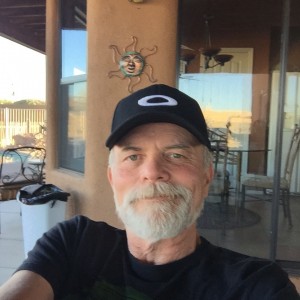DW's Blog
The Wisdom of Little Eyes
by DW Green — April 16, 2025

“I found myself wondering how much richer our lives might be if we could reclaim even a fraction of that child-like perception…”
Last Saturday, I found myself sitting across from my old friend Rich on his back porch. The afternoon sun filtered through the oak branches as we sipped coffee and caught up on life’s latest chapters. Rich’s face lit up when he mentioned his four-year-old grandson, Ethan, who had been staying with him for the week.
“You know what’s strange?” Rich said, leaning forward in his chair. “Yesterday, I was having a rough morning— nothing major, just feeling a bit off. I hadn’t mentioned it to anyone, was just going through the motions making breakfast. Ethan walked into the kitchen, looked up at me, and asked, ‘Grandpa, why are you sad today?’”
Rich shook his head in wonder. “I hadn’t said a word about being upset. My wife didn’t notice anything different about me. But somehow, this little boy picked up on something in my expression or posture that gave it away.”
As Rich continued sharing stories about Ethan’s uncanny perceptiveness, something clicked for me—a realization that felt like a gentle wave washing over my understanding of human consciousness.
Children like Ethan exist in a state of awareness that most adults have long forgotten. Before our egos fully develop, before we learn which parts of reality deserve our attention and which should be filtered out, we experience life with a kind of universal knowing. We notice the subtle shifts in energy around us, the almost imperceptible changes in facial expressions, the unspoken emotions that color every interaction.
It’s not that children are more intelligent in a conventional sense. Rather, they haven’t yet learned to ignore what society deems unimportant. Their perception hasn’t been narrowed by years of conditioning and categorization. The boundaries between self and other remain more permeable, allowing them to sense emotional states and patterns that adults have trained themselves to overlook.
As we grow older, we build layers of conceptual thinking and social conditioning. We learn to focus on words rather than tone, on stated intentions rather than subtle behavioral cues. We prioritize efficiency over awareness, accomplishment over presence. And in doing so, we gradually lose touch with that original state of universal knowing.
Perhaps this explains why we’re often surprised by children’s insights. When Ethan asked his grandfather why he was sad, Rich was witnessing not some mysterious child’s intuition, but a more fundamental human awareness that adults have simply forgotten how to access.
In the presence of children, we occasionally glimpse this lost way of being. We’re reminded of how much more there is to perceive when we drop our filters and preconceptions, when we return to that state of open awareness that was once our natural birthright.
Read more – Friends
Filed Under: DW's Blog





















































